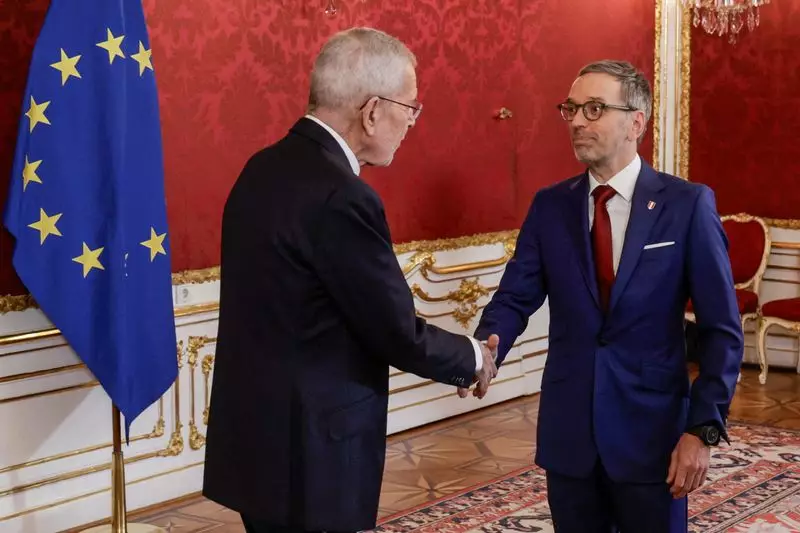Austria’s political environment has recently been marked by significant upheaval, most notably dominated by the ascent of the far-right Freedom Party (FPO). The implications of this shift are manifold, as established parties wrestle with their positions and alliances in response to a rapidly transforming electorate. The FPO, founded in the post-World War II era by former SS officer Anton Reinthaller, has evolved from its controversial origins into a force that can no longer be disregarded in Austrian politics.
In September’s parliamentary elections, the FPO secured a historic victory, claiming over 29% of the vote. This marked the first time the party has emerged as the leading choice among voters, highlighting the evolving political preferences of the Austrian populace. Public sentiment appears increasingly inclined toward a Eurosceptic and nationalist agenda, and the FPO stands at the forefront of this movement.
The aftermath of the elections has seen a scramble among Austria’s political parties to form a viable government. Initially, centrist parties attempted to forge a coalition that excluded the FPO, a strategy that quickly unravelled, signaling perhaps a miscalculation in understanding the electorate’s wishes. The conservative People’s Party (OVP), which came in second place, made efforts to assemble a coalition but failed to secure necessary partnerships, leading to Chancellor Karl Nehammer’s resignation. His departure opens the door for new considerations regarding coalition dynamics, particularly with the FPO’s leader, Herbert Kickl.
Kickl’s consistent rhetoric, which emphasizes putting the needs of the people ahead of traditional party politics, resonates strongly with voters feeling disaffected by established parties. Following Nehammer’s exit, the door appears ajar for discussions in which Kickl’s FPO could play a crucial role, even from a position of leadership for the first time in its history. This contrasts sharply with the previously entrenched positions taken by leaders of parties like the OVP, who had ruled out collaboration with the FPO on moral grounds.
While the OVP and FPO share some common ground, particularly concerning immigration policy and economic reforms, there remain significant areas of contention. The pressing issue of managing the national budget, which is forecasted to exceed the EU’s deficit limits, has proven to be a sticking point for coalition talks. Though both parties advocate for tax cuts, the FPO is adamant about reforming entrenched interests, suggesting a more aggressive approach that could jeopardize existing alliances.
On international matters, divisions emerge more starkly; the FPO’s opposition to military aid for Ukraine and its scepticism towards the European Union diverge sharply from the OVP’s mainstream positions. President Alexander Van der Bellen, a key figure in this political landscape, has emphasized the importance of adhering to democratic principles, insisting that any collaboration must respect Austria’s commitments to human rights and EU solidarity.
As discussions loom about the possibility of a coalition between the five-decades-old FPO and the OVP, public reaction is one of cautious anticipation. Opinion polls indicate that the FPO’s popularity has only grown since the elections, suggesting that any coalition talks could further solidify its political power and reshape the landscape of Austrian governance.
This period may signify a transition towards a more nationalistic and right-leaning governance model, potentially impacting Austria’s role in the EU and its social policies. The new leadership within the OVP appears ready to embrace the prospect of dialogue with the FPO, as they recognize the shifting tides of political favor among constituents. Consequently, should these negotiations ultimately fail, a snap election seems increasingly likely, with the FPO poised to capitalize on any missteps made by its political adversaries.
Austria’s political narrative is rapidly evolving, with the far-right making inroads that challenge the status quo. The ramifications of upcoming coalition talks and decision-making processes will undoubtedly prove pivotal in determining the country’s political trajectory. The coming months will reveal whether Austria enters a new era of governance under the banner of the Freedom Party, marking a departure from decades of centrist politics.

